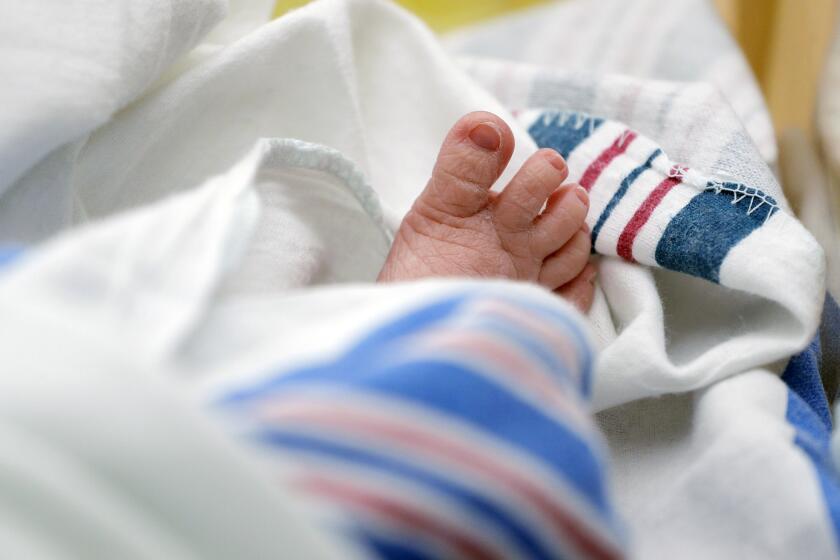Body-image studies explore the source of much of our anxiety
For David Frederick, body image is about more than just self-esteem. It’s a critical part of a person’s overall health.
That’s why the assistant professor of psychology at Chapman University in Orange has spent much of his career researching the topic.
“Body satisfaction is related to so many aspects of people’s lives,” he said. “People who feel worse about their bodies are more likely to engage in obsessive exercise behavior, crash dieting and protein supplement abuse. People who are more anxious about their appearance will become more anxious overall and are more likely to develop depression. And feeling really negatively about your body can cause social withdrawal and discomfort on the dating market.
“There are wide-ranging effects to negative body image.”
Frederick is the primary author of several recent major body image studies, including one that compares Asian American and white women’s feelings of attractiveness and another that examines gay and heterosexual men’s body satisfaction.
In a report published this month in the journal Body Image, Frederick found that Asian American women in Southern California and Hawaii are less satisfied with their physical appearance than whites.
Frederick said the report arose out of a classroom discussion about why Asian women have one of the highest response rates from men in online dating yet consistently report feeling less attractive than white women. It is based on the results of surveys of university-age women in the two states.
One, which polled students at UCLA, found that 79% of white women report high evaluations of their looks compared with 56% of Asian Americans. Meanwhile, 12% of white women but 24% of Asian Americans offer low evaluations of their appearance.
“We kept finding over and over again that Asian women felt less attractive, and this study was to try to figure out what was going on,” said Frederick.
What Frederick found is that Asian American dissatisfaction with appearance boils down to the face and eyes.
“Asian women felt substantially worse about their face, and they were much more likely, in particular, to be dissatisfied with their eyes,” he said. “Around 40% of Asian women felt frequent dissatisfaction with their eyes, compared to only 6% of white women. When you control for these feelings about the face, this is really what explains the overall difference in feelings of attraction.”
The survey of UCLA students also found that 66% of white women compared with 43% of Asians were highly satisfied with their nose, and 66% of whites compared with 44% of Asians were highly satisfied with the shape of their face.
By contrast, white and Asian women reported similar rates of overweight preoccupation.
Frederick said there are several reasons for this disparity in appearance valuation.
“One has to do with prejudice and discrimination,” he said. “If someone is living in a culture where the media and surrounding folks are primarily white, there might be some perception that the facial features marked as other or different are therefore viewed as less attractive. That might make Asian women feel worse.
“If you’re consuming multiple sets of media — from Asia and the United States — you’re getting hit with a double dose of media pressure. You’re getting two sets of ideals that you potentially feel like you’re not matching up to.”
In another study, Frederick examined body satisfaction among gay and heterosexual men based on the results of five national studies of more than 116,000 men.
His report, which was published in the journal Psychology of Men and Masculinity, showed that 20% to 40% of all men feel dissatisfied with their overall physical appearance, and that gay men are even more likely to report feeling judged based on their looks and pressure from the media to be attractive.
Gay men are also more likely to consider cosmetic surgery and to try to hide part of their body during sex.
This disparity, Frederick said, has to do with who these two groups of men are trying to attract, men or women.
“When it comes to a long-term partner, men care more about looks than women do,” he said. “When it comes to short-term partners, it reverses, and men are far more open to having sex with a wider range of people than women are, whereas women raise their standards for appearance in a short-term partner. When it comes to a long-term partner, however, anyone who’s trying to attract a man is going to be under more appearance pressure than someone trying to attract a woman.”
But there is some good news in the research.
“Only 10% of heterosexual men said they felt pressure from their partner to lose weight, and only 6% of gay men,” said Frederick. “Men and women overwhelmingly were satisfied with their partner’s appearance. People are more critical of their own bodies than they are of their partners’.
“Women tend to systematically overestimate the amount of thinness that’s preferred by men, and men tend to systematically overestimate the degree of muscularity preferred by women. There’s a bit of misestimation of what the other sex actually wants and how important it is to them.”




